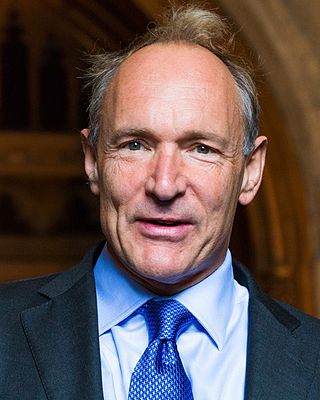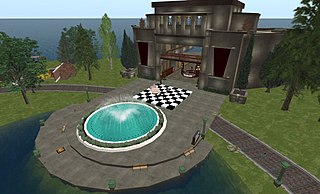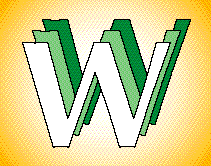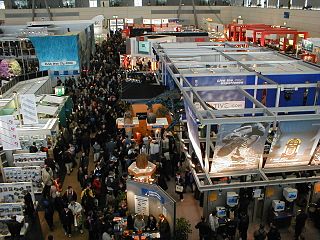
Sir Timothy John Berners-Lee, also known as TimBL, is an English computer scientist best known as the inventor of the World Wide Web, the HTML markup language, the URL system, and HTTP. He is a professorial research fellow at the University of Oxford and a professor emeritus at the Massachusetts Institute of Technology (MIT).

The World Wide Web is an information system that enables content sharing over the Internet through user-friendly ways meant to appeal to users beyond IT specialists and hobbyists. It allows documents and other web resources to be accessed over the Internet according to specific rules of the Hypertext Transfer Protocol (HTTP).

The European Organization for Nuclear Research, known as CERN, is an intergovernmental organization that operates the largest particle physics laboratory in the world. Established in 1954, it is based in Meyrin, western suburb of Geneva, on the France–Switzerland border. It comprises 23 member states. Israel, admitted in 2013, is the only non-European full member. CERN is an official United Nations General Assembly observer.

WorldWideWeb is the first web browser and web page editor. It was discontinued in 1994. It was the first WYSIWYG HTML editor.

CES is an annual trade show organized by the Consumer Technology Association (CTA). Held in January at the Las Vegas Convention Center in Winchester, Nevada, United States, the event typically hosts presentations of new products and technologies in the consumer electronics industry.
The Worldwide Developers Conference (WWDC) is an information technology conference held annually by Apple Inc. The conference is usually held at Apple Park in California. The event is usually used to showcase new software and technologies in the macOS, iOS, iPadOS, watchOS, tvOS, and visionOS families as well as other Apple software; new hardware products are sometimes announced as well. WWDC is also an event hosted for third-party software developers that work on apps for iPhones, iPads, Macs, and other Apple devices. Attendees can participate in hands-on labs with Apple engineers and attend in-depth sessions covering a wide variety of topics.

Free and Open source Software Developers' European Meeting (FOSDEM) is a non-commercial, volunteer-organized European event centered on free and open-source software development. It is aimed at developers and anyone interested in the free and open-source software movement. It aims to enable developers to meet and to promote the awareness and use of free and open-source software.

Robert Cailliau is a Belgian informatics engineer who proposed the first (pre-www) hypertext system for CERN in 1987 and collaborated with Tim Berners-Lee on the World Wide Web from before it got its name. He designed the historical logo of the WWW, organized the first International World Wide Web Conference at CERN in 1994 and helped transfer Web development from CERN to the global Web consortium in 1995. He is listed as co-author of How the Web Was Born by James Gillies, the first book-length account of the origins of the World Wide Web.

A virtual museum is a digital entity that draws on the characteristics of a museum, in order to complement, enhance, or augment the museum experience through personalization, interactivity, and richness of content. Virtual museums can perform as the digital footprint of a physical museum, or can act independently, while maintaining the authoritative status as bestowed by the International Council of Museums (ICOM) in its definition of a museum. In tandem with the ICOM mission of a physical museum, the virtual museum is also committed to public access; to both the knowledge systems embedded in the collections and the systematic, and coherent organization of their display, as well as to their long-term preservation. As with a traditional museum, a virtual museum can be designed around specific objects, or can consist of online exhibitions created from primary or secondary resources. Moreover, a virtual museum can refer to the mobile or World Wide Web offerings of traditional museums ; or can be born digital content such as, 3D environments, net art, virtual reality and digital art. Often, discussed in conjunction with other cultural institutions, a museum by definition, is essentially separate from its sister institutions such as a library or an archive. Virtual museums are usually, but not exclusively delivered electronically when they are denoted as online museums, hypermuseum, digital museum, cybermuseums or web museums.

The World Wide Web is a global information medium that users can access via computers connected to the Internet. The term is often mistakenly used as a synonym for the Internet, but the Web is a service that operates over the Internet, just as email and Usenet do. The history of the Internet and the history of hypertext date back significantly further than that of the World Wide Web.

The ACM Web Conference is a yearly international academic conference on the topic of the future direction of the World Wide Web. The first conference of many was held and organized by Robert Cailliau in 1994 at CERN in Geneva, Switzerland. The conference has been organized by the International World Wide Web Conference Committee (IW3C2), also founded by Robert Cailliau and colleague Joseph Hardin, every year since. In 2020, the Web Conference series became affiliated with the Association for Computing Machinery (ACM), where it is supported by ACM SIGWEB. The conference's location rotates among North America, Europe, and Asia and its events usually span a period of five days. The conference aims to provide a forum in which "key influencers, decision makers, technologists, businesses and standards bodies" can both present their ongoing work, research, and opinions as well as receive feedback from some of the most knowledgeable people in the field.

The Worldwide LHC Computing Grid (WLCG), formerly the LHC Computing Grid (LCG), is an international collaborative project that consists of a grid-based computer network infrastructure incorporating over 170 computing centers in 42 countries, as of 2017. It was designed by CERN to handle the prodigious volume of data produced by Large Hadron Collider (LHC) experiments.

Campus Party (CP) is a conference and hackathon.
CommunicAsia is an information and communications technology (ICT) exhibition and conference held in Singapore. The annual event has taken place since 1979 and is usually held in June. The show customarily runs concurrently with the BroadcastAsia and EnterpriseIT exhibitions and conferences, all of which are operated by Singapore Exhibition Services.

CeBIT was a computer expo which, at its peak, was the largest and most internationally representative. The trade fair was held each year on the Hanover fairground, the world's largest fairground, in Hanover, Germany. In its day, it was considered a barometer of current trends and a measure of the state of the art in information technology. It was organized by Deutsche Messe AG.

Thomas Webb is a contemporary artist, hacker, video game developer, TEDx speaker and magician. The theme of his work explores how society interacts with technology and the effect of social media and AI on mental health. His artwork is programmed into electronic installations using real-time data sources, AI and computer algorithms.

François Flückiger is a French computer scientist who worked at CERN. He was selected for induction in 2013 in the Internet Hall of Fame.
Interactive Futures (IF) was a biennial conference and exhibition, hosted in Vancouver, British Columbia, Canada, that explored current tendencies, research and dialogue related to the intersection of technology and art. Interactive Futures included a variety of events such as lectures, workshops, exhibitions, and panels in an effort to provide opportunities for discourse by local, national and international researchers and practitioners.

DigVentures is a social enterprise organising crowdfunded archaeological excavation experiences. It is registered with the Chartered Institute for Archaeologists (CIfA), and is a CIfA Accredited Field School.















